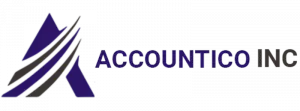Tax season can be stressful for both individuals and business owners. Managing records, filing returns, and ensuring compliance with tax laws often take up a lot of time and effort. However, with proper planning and preparation, taxes can actually become an opportunity to improve your financial health rather than a yearly burden.
In 2025, smart businesses and individuals are focusing on tax preparation and planning not just to meet legal requirements, but also to achieve long-term financial stability. By applying the best tax strategies, you can reduce your liabilities, save more money, and stay ahead of deadlines.
Let’s explore the key steps to achieve financial success through efficient tax preparation and planning.
1. Start Early and Stay Organized
The first rule of successful tax preparation is early planning. Waiting until the last moment increases the risk of errors and missed deductions.
Keep all your receipts, invoices, and bank statements organized throughout the year. Using cloud-based accounting software helps you track income and expenses in real time — making tax filing easier and faster.
2. Understand Your Tax Obligations
Every business and individual has different tax responsibilities. Knowing what applies to you — whether it’s income tax, sales tax, or business tax — is crucial.
Staying informed about tax law updates ensures you remain compliant and avoid penalties. Consulting a tax professional can help you identify your exact obligations and apply the best tax strategies for your specific situation.
3. Use Professional Tax Preparation Services
Hiring professional help can make a big difference, especially for small businesses. Tax experts have the experience to identify deductions and credits that you might overlook.
They also ensure that your filings are accurate and submitted on time. Outsourcing tax preparation not only saves time but also minimizes the chances of costly errors.
4. Take Advantage of Deductions and Credits
Many businesses miss out on valuable tax deductions simply because they aren’t aware of them.
Common deductions include office expenses, equipment purchases, travel costs, and employee benefits. By applying the best tax strategies, you can identify these opportunities early and reduce your overall tax burden.
Always keep proper documentation to support your claims during audits.
5. Plan for Future Tax Liabilities
Tax planning isn’t just about the current year — it’s about preparing for the future.
By forecasting your income and expenses, you can estimate how much tax you’ll owe and set aside funds in advance.
This approach prevents cash flow issues and ensures smooth financial operations. Many businesses also schedule quarterly tax reviews to adjust their strategies as needed.
6. Invest in Tax-Advantaged Accounts
If you’re self-employed or managing a small business, consider investing in retirement or health savings accounts.
These accounts not only help secure your future but also offer significant tax benefits. Contributions to such accounts are often deductible, helping you lower taxable income — a core part of the best tax strategies for 2025.
7. Keep Up with Tax Law Changes
Tax regulations are constantly evolving. Governments frequently update rules regarding deductions, filing methods, and reporting standards.
Subscribing to official tax updates or following reliable financial blogs keeps you informed. Staying current allows you to take advantage of new tax-saving opportunities before it’s too late.
8. Maintain Accurate Financial Records
Good recordkeeping is the foundation of effective tax preparation.
Use accounting software to maintain digital records of every transaction. This not only simplifies audits but also helps you identify trends, control expenses, and prepare better for future tax years.
9. Work with a Tax Advisor for Custom Strategies
Every business is different, which means your tax approach should be unique too.
Working with a professional tax advisor ensures you have a personalized plan that aligns with your goals. They can guide you toward the best tax strategies to legally minimize liabilities and maximize savings.
10. Review and Reflect After Filing
After tax season, review your performance — what worked and what didn’t.
Understanding past mistakes helps you refine your approach for the next year. Consistent evaluation is key to continuous financial success.
Conclusion
Effective tax preparation and planning go beyond filing forms — they are about creating a long-term financial strategy. By staying organized, using technology, and implementing the best tax strategies, individuals and small businesses can ensure compliance, reduce stress, and save money.
In 2025, success belongs to those who plan ahead. Whether you handle taxes yourself or hire professionals, the goal remains the same: to make smarter financial decisions that build stability and growth for years to come.

